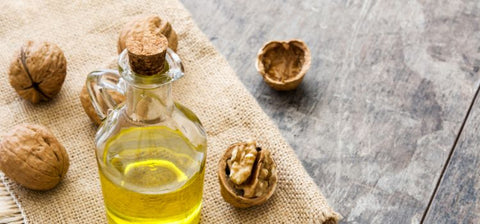There's a lot of conflicting information on the health benefits of canola oil. Organic canola oil isn't bad for you but is typically genetically modified and refined, making other options better.
There is a lot of controversy concerning how healthy canola oil is. Because of how it's made, more and more people are beginning to doubt its benefits. But what is canola oil?
Keep reading to take a closer look at the pros and cons of canola oil for cooking.
Is Canola Oil Really a Healthy Cooking Oil?

Often marketed as the world's healthiest vegetable oil, is canola oil as good as everyone says?
Canola oil is a form of vegetable oil that comes from the rapeseed plant. It was created at the University of Manitoba in the 1970s. The Canadian government-backed its production, and it became a staple in most households.
Canola Oil vs. Vegetable Oil
Like the popular olive oil, canola oil contains a high amount of oleic acid. Both oils also contain low amounts of saturated fats and high amounts of unsaturated fats.
It's also a great source of omega-3 and 6 polyunsaturated fatty acids. These are all reasons why it's found in a wide range of food items. But other oils may be healthier (more on this later).
What are the Benefits of Canola Oil?
Generally, saturated fats are associated with high cholesterol levels. This has labelled many cooking oils as "unhealthy." For example, people consider corn, soy, and sunflower oils unhealthy because they're high in saturated fats.
Compared to some of these unhealthy vegetable oils, canola oil has many benefits. It has a very low saturated fat content (the bad fat) and has benefits from both omega-3 and 6 fatty acids (the good fat).
The most well-known type of unsaturated fats are omega-3 fatty acids. These have many potential benefits for your heart and are present in canola oil.
Omega-6 fats are essential to our health, but it's important to have a balanced level of omega-3s. Western diets tend to be extremely high in omega-6s. This can cause inflammation and may lead to chronic conditions such as Alzheimer's, obesity, and heart disease.
A healthy intake ratio of omega-6 to omega-3 is 1:1. Still, western diets tend to weigh in at around 15:1. This oil contains a ratio of 2:1, which isn't too bad but can get compounded with the rest of your diet.
Some of the benefits of canola oil explain why it has become so popular. Unfortunately, it's higher in omega-6s than omega-3s and tends to be highly processed, which may lower its nutritional value.
So, Is Canola Oil Bad?
Canola oil isn't necessarily bad. It can be a healthy alternative to other cooking oils, but over 90% is genetically modified. There are no long-term, reliable studies on GMO canola oil, either. Yet, there are concerns about its effects on the environment, health, and food safety. There is little data on the health risks of GMO foods in general, which causes many to avoid them.
When looking for the healthiest cooking oil, look for organic and cold-pressed options. Cold-pressing is when a steel press crushes the nut or seed to produce oil. Because this method doesn't use heat, its flavour, aroma, and nutritional value isn't affected. Using heat in the extraction produces more oil, but the quality is lower.
"The lower-cost products sold in supermarkets have often been extracted with chemical solvents or high-speed presses that generate heat," says Andrew Weil, M.D. in integrative medicine at Harvard. In non-organic oils, the plants may also grow using high levels of pesticides. This can affect the final product. So, cold-pressed, GMO-free, organic canola oil is the best for your health. This exists, but it's expensive and hard to find.
Canola Oil Substitute

While some of canola oil's health benefits and risks are still unclear, there are many others with proven benefits.
Some heat-stable cooking oil alternatives that are high in antioxidants include:
Other oil substitutes that aren't heat-stable and are a source of omega-3 fatty acids include:
- Flaxseed oil
- Walnut oil
Final Thoughts
Canola oil isn't inherently bad for you, but its production can make it less nutritious. Most canola oil is also genetically modified, which doesn't have much research. Some alternatives you can use with proven benefits include olive and coconut oils.
What is your go-to cooking oil? Let us know in the comments below!
References:
- https://www.northerncanola.com/canola/Canola-History/
- https://www.healthline.com/nutrition/is-canola-oil-healthy
- https://www.healthline.com/nutrition/cold-pressed-olive-oil
- https://www.northerncanola.com/canola/Canola-Nutrition/
- https://www.healthline.com/nutrition/rapeseed-oil
- https://www.hsph.harvard.edu/nutritionsource/2015/04/13/ask-the-expert-concerns-about-canola-oil/





